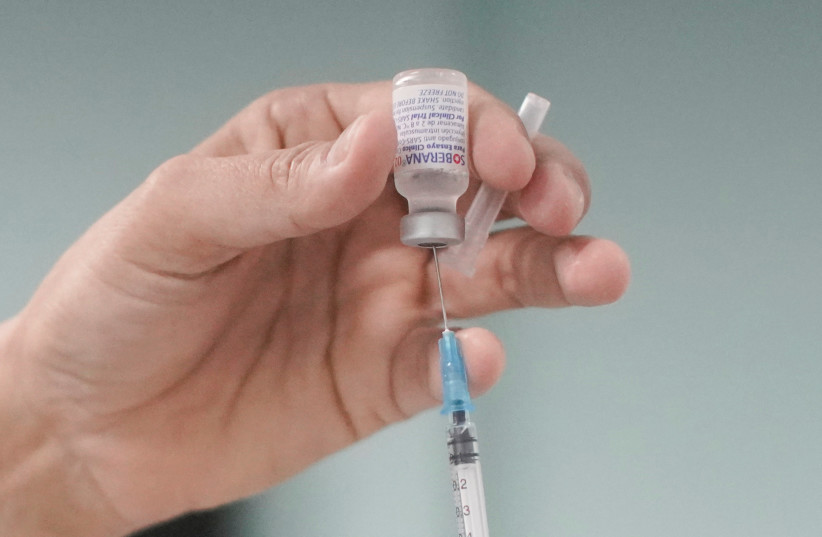An additional four corona Omicron cases have been identified in Israel, bringing the total to 11, the Health Ministry announced on Sunday.
The four new cases were all fully vaccinated and had recently been abroad, two in France, one in the US and one from South Africa. Three were inoculated with Pfizer and one with Moderna.
Among the previously identified cases, three were vaccinated individuals – two with Pfizer and one with AstraZeneca – and four were unvaccinated members of a family who had recently visited South Africa.
There were also 24 cases of people suspected of having been exposed to the variant who were waiting for the results of the genetic sequencing of their tests, 12 of whom had recently returned from abroad. Only eight of the 24 are fully vaccinated, while 16 are not.
Another 14 cases were under investigation, but those people are considered to have been at low risk of having contracted Omicron.
As of Sunday, among all the 35 individuals either infected with the Omicron variant or likely infected, 21 were asymptomatic – 10 of them vaccinated and 11 not – and 14 presented symptoms (only three of them vaccinated). The status of another two individuals was not known.
“We need to be humble, at the moment we do not know enough about this strain,” Prime Minister Naftali Bennett said at the opening of the cabinet meeting. “We know with a high degree of certainty that it is highly contagious.
Bennett said the government is constantly monitoring and reassessing the situation based on the available data.
“Some ask why we make things more difficult if the situation is good in Israel,” he asked. “The reason the situation is good in the country is that we acted fast. We know how to lift restrictions when needed, and we know how to tighten them when needed. In the current uncertainty, this is exactly the right move. It’s better to be careful at the beginning than to regret it later.”
The government also approved a new round of general testing in the education system when children return from the Hanukkah break on Tuesday.
As previously proposed, the cabinet decided that all schoolchildren from pre-schools and grades 1-6 will need to undergo a rapid corona test – also known as antigen – before returning to school on Tuesday after the Hanukkah holiday.
Meanwhile, the morbidity in the country started to plateau after increasing for nearly three weeks. The rise was not caused by the Omicron variant.
In the week between November 28 and December 4, an average of 506 new cases were recorded every day. In the previous week, there were 509, and in the week before that 456.
For several days, the number of active cases in the country has remained stable at around 5,500. As of Sunday, they were 5,300. At the peak of the fourth wave in September, they were over 80,000.
On Saturday, the R rate dropped below 1 for the first time in over two weeks, but it climbed back to 1 on Sunday.
The number of serious cases in the country continued to decline on Sunday, standing at 110. A week earlier there were 127.
Exactly 241 new virus carriers were identified on Saturday, a much lower number than on previous days − when the new daily cases stood at about 450 − as usually happens since fewer tests are processed during the weekend.

